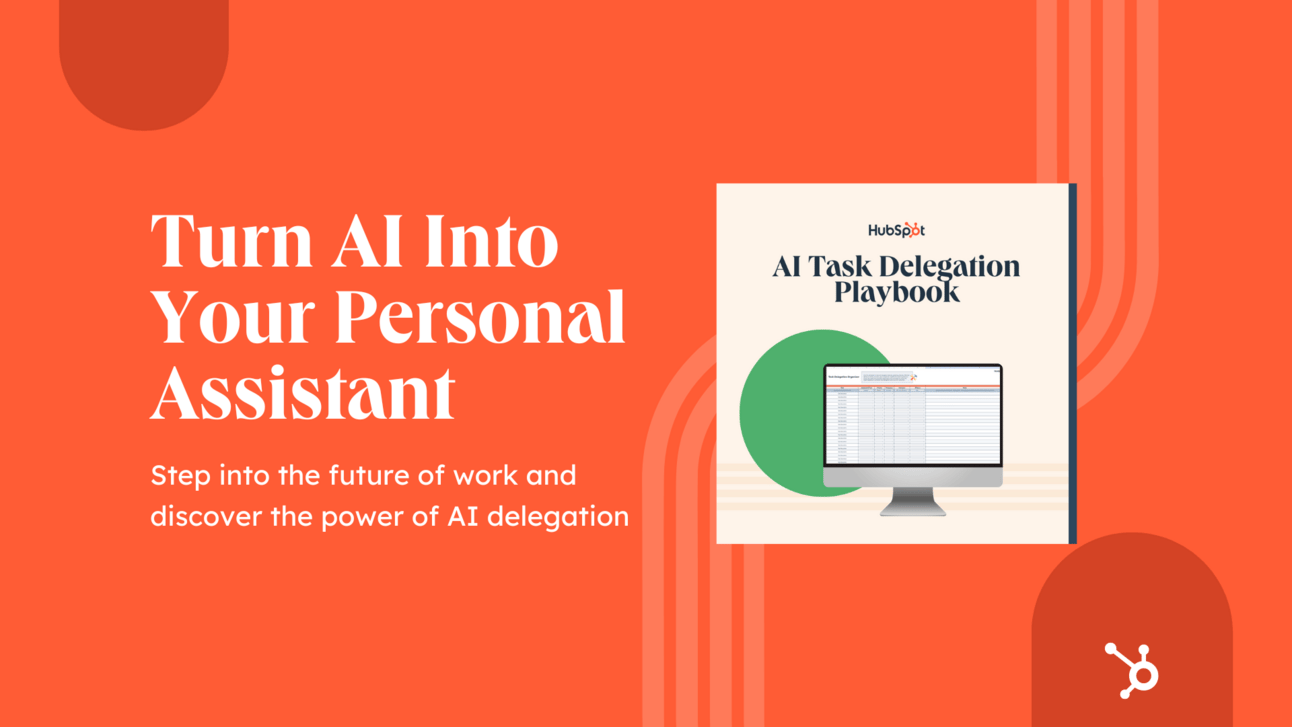Harvard paper shows the fast adoption of AI
Tech giants bet billions on AI Agents
Harvard paper shows the fast adoption of AI
How Sam Altman took over OpenAI
Tech giants bet billions on AI Agents
Use AI as Your Personal Assistant
Ready to embrace a new era of task delegation?
HubSpot’s highly anticipated AI Task Delegation Playbook is your key to supercharging your productivity and saving precious time.
Learn how to integrate AI technology into your processes, allowing you to optimize resource allocation and maximize output with precision and ease.
***
Harvard paper shows the fast adoption of AI
The paper "The Rapid Adoption of Generative AI" presents several key findings about the adoption and usage of generative AI in the United States.
Generative AI has been adopted at an unprecedented pace, surpassing the early adoption rates of both personal computers and the internet. As of August 2024, just two years after the public release of ChatGPT:
39.4% of Americans aged 18-64 reported using generative AI
28% of employed respondents used it at work
Nearly 33% used it away from work
This adoption rate is significantly faster compared to:
The internet:
20% adoption after two years
Personal computers: 20% adoption after three years
Contrary to expectations, generative AI is not limited to tech-savvy professionals:
22.1% of "blue-collar" workers in construction, installation, repair, and transportation regularly use generative AI on the job
Usage rates exceed 40% in management, business, and computer occupations
One in five workers without a college degree use generative AI regularly at work
The study reveals significant regular usage of generative AI in the workplace:
More than 24% of workers used it at least once in the week prior to being surveyed, and 10.6% used it daily at work
Nearly one in nine workers used it every workday….
Read the original on Harvard Project on Workforce
***
How Sam Altman took over OpenAI
In a story of meteoric rise and internal upheaval at OpenAI. However, this expansion has been accompanied by a wave of high-profile executive departures, raising concerns about the stability and direction of the company.
The exodus of key figures, including several co-founders and senior leaders, has only added to the sense of uncertainty surrounding the company's future. Industry analysts suggest that these departures may be indicative of deeper organizational issues, as OpenAI navigates the delicate balance between its ambitious goals and the realities of maintaining a cohesive and focused team.
In the 11 months since Sam Altman was briefly fired and then rehired as the chief executive officer of OpenAI, the company has undergone a dramatic transformation within its upper ranks. After Altman was reinstated to his position, the board he had clashed with was overhauled, and the C-suite that had previously supported him was significantly expanded. This reshuffling has left Altman as one of the last remaining founders still at the pioneering artificial intelligence startup.
Sources familiar with the matter have reported a growing sense of unrest within OpenAI's ranks, as the company grapples with the challenges of scaling its operations and managing the complexities that come with its newfound prominence in the AI landscape.
Prior to the brief ousting and subsequent reinstatement of CEO Sam Altman, OpenAI maintained a relatively small C-suite, consisting of key figures such as CTO Greg Brockman, research director Dario Murati, and COO Brad Lightcap, in addition to Altman and co-founder Ilya Sutskever. However, in the wake of Altman's reinstatement, the company has significantly expanded its executive leadership team, bringing on a new chief financial officer, chief product officer, and chief commercial officer. — roles that suggest the company is focusing more on expanding its product lineup, selling software to businesses and raising capital….
Read the original on Bloomberg
***
Tech giants bet billions on AI Agents
Tech giants and investors are pouring billions of dollars into AI agents, seeing them as the next frontier in artificial intelligence beyond chatbots. This surge in investment highlights the potential of AI agents to transform industries and create new opportunities.
AI agents are software programs that can perform tasks and make decisions autonomously based on their environment, inputs, and predefined goals. Unlike chatbots that require constant user interaction, AI agents can complete tasks on their own with less human oversight.
Some key developments in the AI agent space include: A surge in funding for AI agent startups, with deal count up 81.4% year-over-year according to PitchBook. Major tech companies like Microsoft, Google, and OpenAI actively developing AI agents to enhance productivity. AI agents showing promise in areas like customer service, software development, marketing, legal services, and education.
Some compelling use cases include:
Customer service: Klarna reported its AI agent took over two-thirds of customer chats and performed work equivalent to 700 full-time agents within a month.
Enterprise productivity: Fortune 500 companies are using domain-specific AI agents to enhance customer service while delivering tangible ROI.
Cost savings: One Fortune 100 company is on track to save over $100 million in labor costs by using AI agents to automate consumer interactions….
Enjoy! SBalley Team

